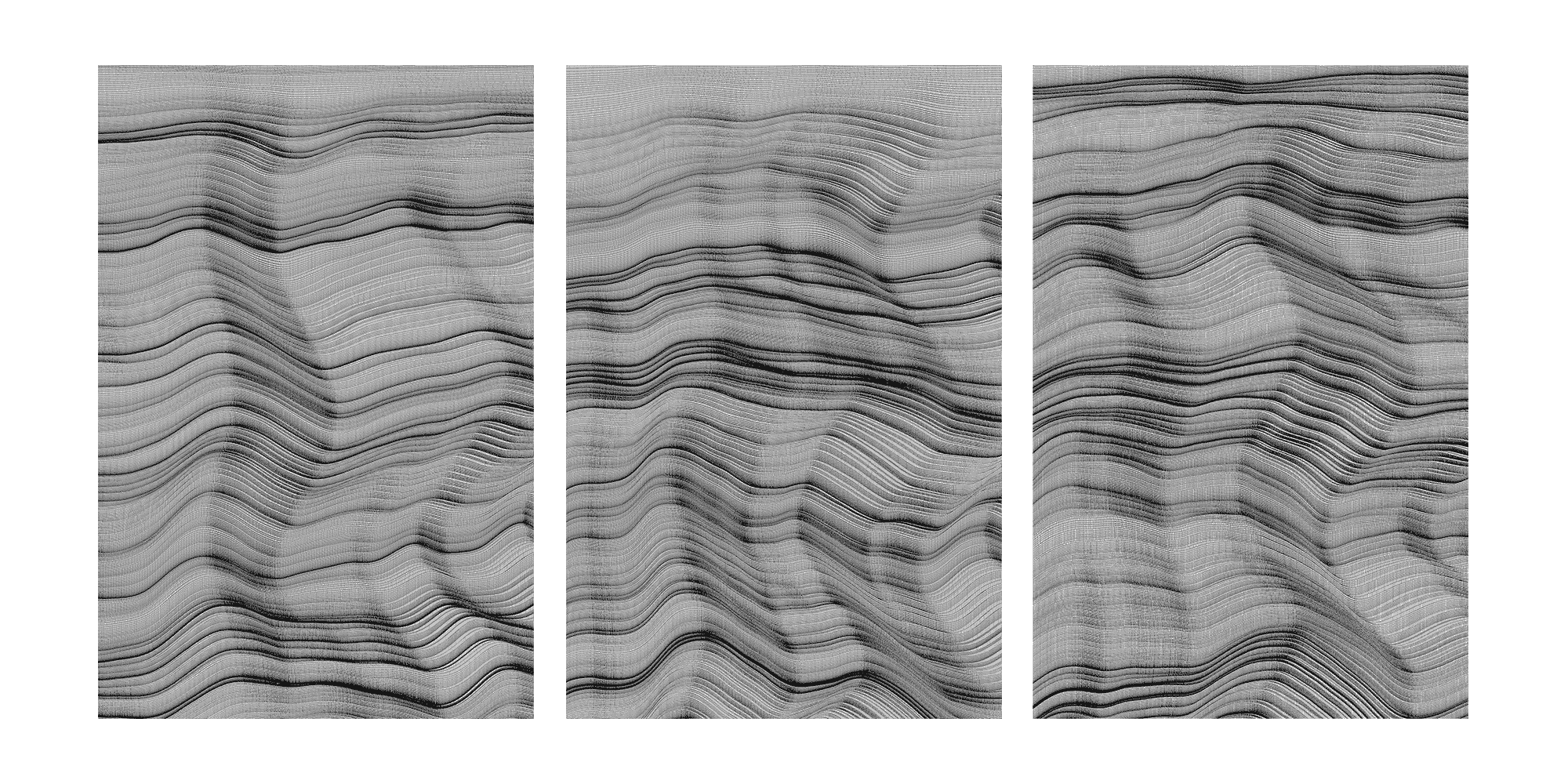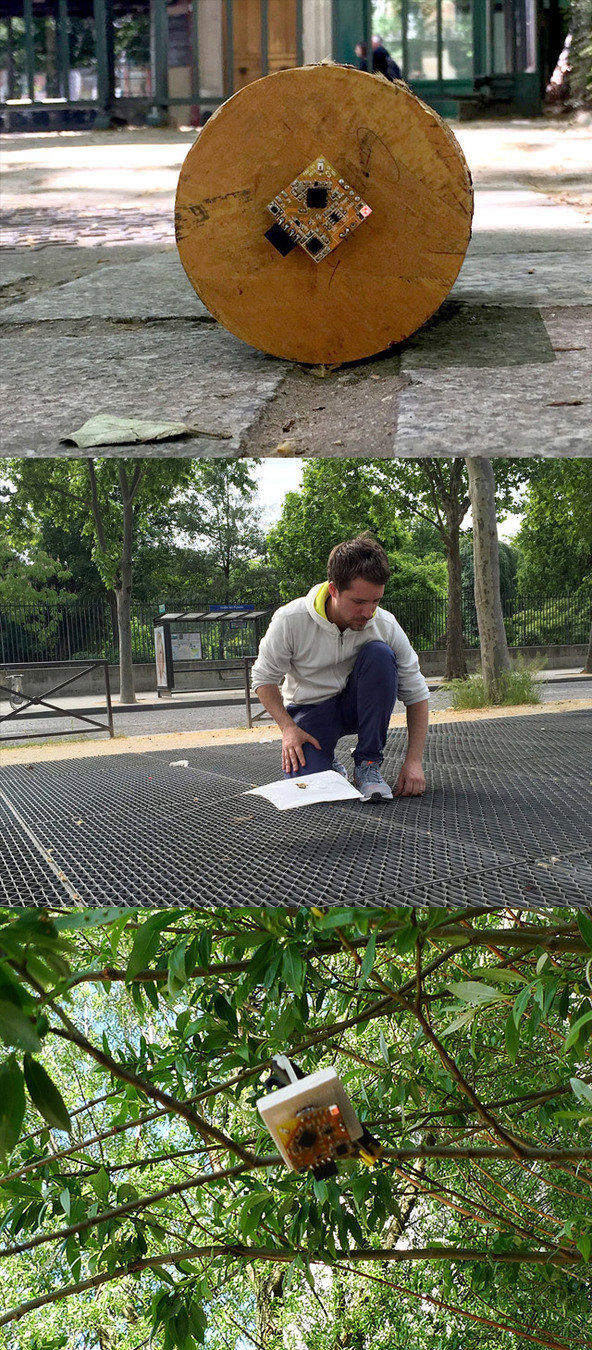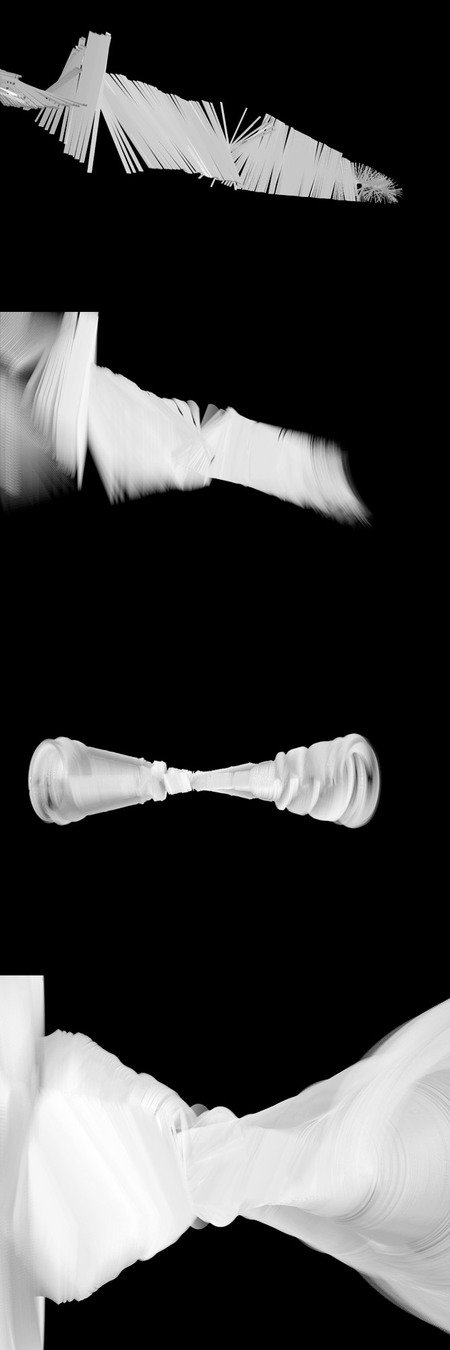Andreas Schlegel
Coding Images
2020



Coding Images
Andreas Schlegel
Coding Images
2020
Coding Images
Artist Presentation
Andreas Schlegel
Coding Images
2020
30 mins
Q&A
10 mins
Break
5 mins
Workshop introduction and demo
20 mins
Participants to work independently
40 mins
Sharing of outcomes
15 mins
Code and Creative Practice
Andreas Schlegel
Coding Images
2020
In this presentation, Andreas Schlegel will give a brief overview of his work as a creative practitioner working with code and across disciplines.
When we think of coding, the visual arts are certainly not the first discipline that comes to mind where code is applied. However, artists have been enthusiastic, often innovative and influential practitioners at the intersection of code and art.
Code and Creative Practice
Looking back at my practice over the past years, my work is diverse in discipline, application and interest, but what most of my work has in common is writing code, expressing ideas through code. To what extend can code be a creative medium and to what extend is it a tool? Or is it both?
Over the years as practitioner and educator, code has been a constant and driving force in my work. You may notice in the following that code takes on different roles, applications and outcomes.
Although coding is a rather solitary activity, many of my works are collaborative and span across various disciplines and applications, from visual arts to music and performance, from research and education to workshops, performances or exhibitions.
I have written software to express ideas through visual, audible, interactive, or networked outcomes. Often this is driven by my fascination for contemporary technologies and advancements.
Tech now seems to advance and change so rapidly, I am not sure if it is me who is getting slower or if it is tech and the world that is just getting faster and faster?
Andreas Schlegel
Coding Images
2020
Code and Creative Practice
Andreas Schlegel
Coding Images
2020
The presentation is followed by a workshop where we will look at the Processing project and in particular at p5js, a browser based coding environment as well as a community of artists, designers, researchers, academics, young and old, all walks of life connected by their interest in code.
Based on a series of prepared examples, workshop participants are invited to remix code and play with numbers to modify the visual output generated by code.
Ada Lovelace
Casey Reas
Ben Fry
Lauren McCarthy
1
2
3
19th Century
21st Century
Harold Cohen
20th Century
Andreas Schlegel
Coding Images
2020
Ada Lovelace

Ada Lovelace (1815 - 1852), although not an artist but considered the first computer programmer, asked in a letter to her mother, who was terrified that Ada might end up being a poet like her father: “if you can’t give me poetry, can’t you give me poetical science?” Can code be poetry? Can code make poetry?

Andreas Schlegel
Coding Images
2020
poetically: with an imaginative or sensitively emotional style of expression.
Harold Cohen
The artist Harold Cohen, for example, dedicated most of his life to AARON, an AI machine that he meticulously developed and taught to paint independently and create his own painting style.
At times, AARON was quite autonomous of Cohen, responsible for the composition, coloring, and other aspects of a work; more recently, AARON served Cohen by making drawings that he would develop into paintings.
Harold Cohen and Aaron, 2016

Andreas Schlegel
Coding Images
2020
In the early 2000s MIT students Casey Reas and Ben Fry at the Media Lab’s Aesthetics and Computation Group created a coding environment called Processing which should become a platform and community for many creatives to use code as an essential companion in their practice.
Ben Fry
Casey Reas
Lauren McCarthy

Andreas Schlegel
Coding Images
2020
Andreas Schlegel
Coding Images

The Oort Cloud and the Blue Mountain
2019
2020
Some work samples
National Gallery
Singapore
Andreas Schlegel
Coding Images
The Oort Cloud and the Blue Mountain
2019
2020

Some work samples
National Gallery
Singapore
Andreas Schlegel
Coding Images
The Oort Cloud and the Blue Mountain
2019
National Gallery
2020
Some work samples

Singapore
Andreas Schlegel
Coding Images
Of Random Forests
2019
Tainan Art Museum

Taiwan
2020
Some work samples
Andreas Schlegel
Coding Images
Moving Lights Workshop
2019
Total Museum Seoul

South Korea
2020
Some work samples
Andreas Schlegel
Coding Images
Polar Reversal
2016

Institute of Contemporary Arts
Singapore
2020
Some work samples
Andreas Schlegel
Coding Images
Ordinary Objects as Interface
2015–2018
2020
Some work samples

Andreas Schlegel
Coding Images
Ordinary Objects as Interface
2015–2018
2020
Some work samples

Andreas Schlegel
Coding Images
Electromagnetic Objects
Ongoing project


2020
Some work samples









Andreas Schlegel
Coding Images
2020

I like numbers
Andreas Schlegel
Coding Images
2020
3 Projects
Andreas Schlegel
Coding Images
2020
Random Noise Flow
1
2010
Movement of Things
2
2015
Machine Dreams
3
2020
2010
Random Noise Flow

Andreas Schlegel
Coding Images
2020
2010
Random Noise Flow

RandomNoiseFlow uses custom software to create black and white textures. The algorithm written for RandomNoiseFlow uses numbers generated by a computer's random number generator and the Perlin noise algorithm. The resulting algorithm is used to define the position of a single particle in a 2D space over time. The particle, a tiny white rectangle with a black border of one pixel, incrementally marks its next position. The images generated then resemble the visual quality of lava or rock layers expressed by algorithms and numbers.
Andreas Schlegel
Coding Images
2020
Random Noise Flow
Andreas Schlegel
Coding Images

2010
2020


Random Noise Flow
2010
Andreas Schlegel
Coding Images
2020

Random Noise Flow
2010
Andreas Schlegel
Coding Images
2020

Random Noise Flow
2010
Andreas Schlegel
Coding Images
2020
Random Noise Flow

Andreas Schlegel
Coding Images
2020
Random Noise Flow


2010
Andreas Schlegel
Coding Images
2020

Random Noise Flow
2010
Andreas Schlegel
Coding Images
2020
Andreas Schlegel
Coding Images
2020
2015
Movement of Things

2015
Movement of Things
In Movement of Things, a small motion sensor is attached to various physical objects to measure and record their movements. This project does not represent an end result, but a process. You could say the project just happened, one idea followed the next - through discussions, being in the flow, leading from one step to the next. Looking back at the work today, it doesn't make much sense functionally, but poetically it has value, stories and memories.

Andreas Schlegel
Coding Images
2020
Andreas Schlegel
Coding Images
Movement of Things
2015






2020
Paris, France
Andreas Schlegel
Coding Images
Movement of Things
2015


2020
Andreas Schlegel
Coding Images
Movement of Things
2015


2020
Andreas Schlegel
Coding Images
Movement of Things
2015
2020
Andreas Schlegel
Coding Images
Movement of Things
2015





2020
Andreas Schlegel
Coding Images
Movement of Things
2015
2020

Andreas Schlegel
Coding Images
Movement of Things
2015
2020

Andreas Schlegel
Coding Images
Movement of Things
2015
2020

Andreas Schlegel
Coding Images
Movement of Things
2015
2020
2020
Machine Dreams
Andreas Schlegel
Coding Images

2020
2020
Machine Dreams
Andreas Schlegel
Coding Images

Code is best written when in the flow, in a state of mind comparable to that of solitude and pure focus. Writing code is often associated with logic, rationality and efficiency – Machine Dreams eludes this approach. It is a generative system that creates a constantly changing sequence of images. Random numbers represent the sensory experience captured in this imaginary world, and computational processes translate into fleeting moments of abstract patterns.
2020
Andreas Schlegel
Coding Images

Machine Dreams
2020
2020

Andreas Schlegel
Coding Images
Machine Dreams
2020
2020

Ray marching is a technique which traces a path of light step by step while testing for ray intersections. It is useful to find surfaces and render volumes in 3D space. The generated shapes in this work start from a sphere and continuously transition into heavily distorted and abstracted forms through parameter changes.
Ray marching computes 2D images from 3D volumetric data sets . It is often used in computer graphics to render (hyper-)realistic looking 3D scenarios and has its place in the demo scene, games, special effects or high-end graphics engines.
Andreas Schlegel
Coding Images
Machine Dreams
2020
2020
The first algorithm is based on reinforcement learning, an area of machine learning. In reinforcement learning, software agents perform actions within an environment.
Agents here learn over time based on the rewards they receive - learning by trial and error. This technique has proven to be successful when used in games, controlling robots, or performing autonomous tasks.
The second algorithm is based on a technique called ray marching. Here, the algorithm follows a virtual light path step by step, checking for intersections with objects in the environment.
Ray Marching is useful for finding surfaces and for rendering volumes in 3D space. It is commonly used in computer graphics to render (hyper)realistic looking 3D scenarios in real time and has its place in games, demoscene, virtual reality, special effects in movies or high-end graphics engines.


In Machine Dreams two algorithms run in parallel, one informing the other through its actions.
Andreas Schlegel
Coding Images
Machine Dreams
2020




2020
Andreas Schlegel
Coding Images
Machine Dreams
2020

2020
Andreas Schlegel
Coding Images
Machine Dreams
2020
2020
Andreas Schlegel
Coding Images
Machine Dreams
2020
2020
Andreas Schlegel
Coding Images

2020


Artist Presentation
Andreas Schlegel
Coding Images
2020
30 mins
Q&A
10 mins
Break
5 mins
Workshop introduction and demo
20 mins
Participants to work independently
40 mins
Sharing of outcomes
15 mins
Remix Workshop
Remix code
Change numbers
Don't easily give up
Play
Take one or more screenshot or a screen-recording and share at the end of the session
Andreas Schlegel
Coding Images
2020
What you can do
What you can share
Andreas Schlegel
Coding Images
2020
The p5js project
The Sketch
Remix Workshop
Andreas Schlegel
Coding Images
2020
The online editor
Remix Workshop
Andreas Schlegel
Coding Images
2020
Remix Workshop
3 Sketches
Slitscan
1
Noise Space
3
Delaunay
2
Andreas Schlegel
Coding Images
2020
Remix Workshop
How to run, duplicate and save p5js sketches.
Artist Presentation
Andreas Schlegel
Coding Images
2020
30 mins
Q&A
10 mins
Break
5 mins
Workshop introduction and demo
20 mins
Participants to work independently
40 mins
Sharing of outcomes
15 mins
2008
Syntboutique

Andreas Schlegel
Coding Images
20 November 2020
2008
Syntboutique
Field Trip
DIY 3D scanning
3D Printing
Exhibition
in search of artifacts in a wide open terrain and far away.

Andreas Schlegel
Coding Images
20 November 2020
Andreas Schlegel
Coding Images
20 November 2020
Syntboutique
2008

Andreas Schlegel
Coding Images
20 November 2020
Syntboutique
2008

Andreas Schlegel
Coding Images
20 November 2020
Syntboutique
2008








Andreas Schlegel
Coding Images
20 November 2020
Syntboutique
2008

tropical-2020-coding-images
By Andreas Schlegel
tropical-2020-coding-images
- 591





